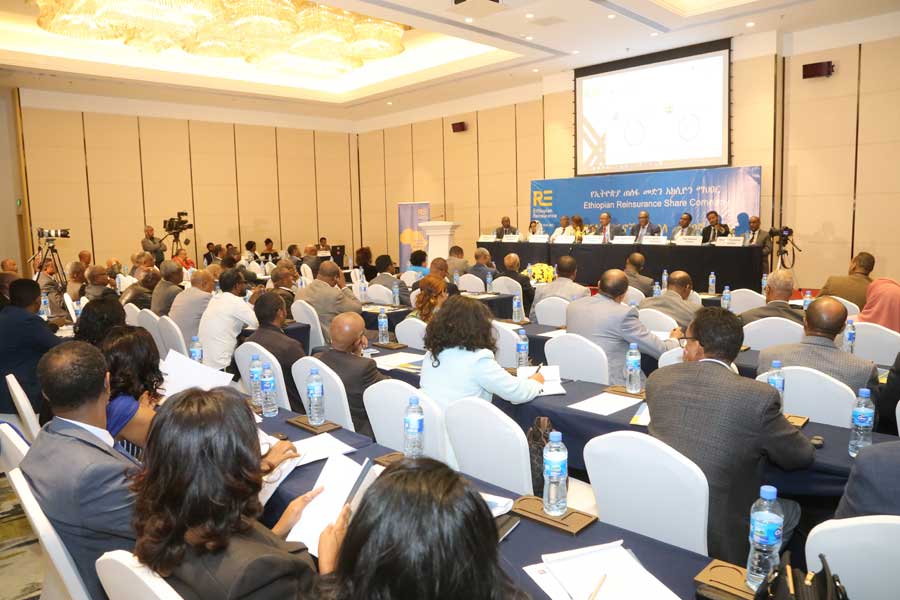
Viewpoints | Jun 19,2021
Feb 11 , 2023
By Dani Rodrik
While economists and policymakers have long appreciated the economic significance of knowledge, they have not paid sufficient attention to the conditions that make it useful, argued Dani Rodrik, professor of International Political Economy at Harvard Kennedy School and the author of "Straight Talk on Trade: Ideas for a Sane World Economy" in this piece provided by Project Syndicate (PS).
Knowledge holds the key to economic prosperity. Technology, innovation, and know-how come from learning new ways to produce the goods and services that enrich us. Knowledge is also the archetypal "public good": new ideas can benefit everyone; and unless governments or monopolies restrict their dissemination, usage does not diminish availability.
This is especially important for poor countries, because it means they do not have to reinvent the wheel. They can simply adopt technologies and methods created by richer countries to drive their own economic development.
While economists and policymakers have long appreciated the economic significance of knowledge, they have not paid sufficient attention to the conditions that make it useful. Context matters: any mismatch between the conditions under which ideas are generated, and the specificities of the environment where they are applied can significantly reduce the value of acquiring knowledge.
For example, corn is grown worldwide; but it is subject to different environmental threats depending on the local ecology. Research and development efforts have naturally focused on developing resistance to pests that are most common in North America and Europe. As a result, thousands of biotech patents are geared toward the European corn worm, but only five unique patents are for innovations protecting against the maize stalk borer, which predominantly affects Sub-Saharan Africa.
Having studied these and many other examples, economists Jacob Moscona and Karthik Sastry of Harvard University argue that the inappropriateness of technologies developed in advanced economies can pose a significant obstacle to agricultural-productivity growth in low-income areas. According to their analysis, the technology mismatch in crop-specific pests and pathogens alone can account for 15pc of the global disparity in agricultural productivity.
In a recent panel discussion organized by the International Economic Association, Moscona and other experts provided a wide range of illustrations of inappropriate technologies at work. Mireille Kamariza, a bioengineer at UCLA, described how developing diagnostic technologies for tuberculosis and other infectious diseases that chiefly affect low-income countries has lagged far behind diagnostic technologies for rich-country diseases.
When COVID-19 hit rich countries, hundreds of diagnostic tests became available within months. By contrast, it took more than a century to achieve comparable progress concerning tuberculosis. Moreover, advanced tuberculosis-diagnostics techniques still rely on trained technicians and a steady supply of electricity, which may not be available in low-income settings.
The mismatch can also occur within countries when technologies tailored to the interests of certain groups are deployed more widely. Automation and digital technologies, for example, can be inappropriate if they produce undesirable effects for many workers. As Anton Korinek of the University of Virginia notes, all innovations are double-edged: they can enhance productivity in the aggregate, but they can also generate sharp redistributive effects favouring capital owners over workers. And when the overall productivity gains are not very large, they can easily be outweighed (from a societal perspective) by the negative redistributive effects – a phenomenon that economists Daron Acemoglu and Pascual Restrepo call "so-so" innovation.
Robots provide the clearest example of this adverse shift against workers, and artificial intelligence is expanding the range of domains where distributional conflicts can become significant. As Korinek points out, chatbot software that replaces human workers enhances the returns to AI engineers and firm owners, while displacing workers with less than a college education. The impact is magnified in developing countries where low-cost labor is the sole source of comparative advantage.
Moreover, knowledge is embedded not only in seeds or software but also in cultural norms. At the same IEA panel, economist Nathan Nunn talked about a different, temporal kind of mismatch where knowledge and practices that were appropriate for society at one time could later become dysfunctional. Cultural traditions pass on useful knowledge to future generations. Religious rituals, for example, can help coordinate crop planting, and particular cooking techniques a family's elders imparted can protect against dietary toxins. But since cultural norms evolve slowly, rapid changes in society can produce an "evolutionary mismatch."
Drawing on his work with Leonard Wantchekon, Nunn gives the example of Africa's traumatic experience with transcontinental slavery. Communities in Africa that had the most extensive contact with slave traders developed a deep mistrust of outsiders, leaving them with a cultural inclination counterproductive to developing a flourishing market economy in today's world. Similarly, Americans' aversion to redistribution appears to reflect the country's high degree of economic mobility in the past, rather than current realities.
Whether they take the form of inappropriate technologies or cultural practices, such mismatches need to be addressed if knowledge is going to benefit society. One strategy is consciousness-raising.
That is how the environmentalist movement helped steer consumer demand away from fossil fuels and mobilize support for the development of renewables. A similar "technology for workers" movement could redirect innovation in a more labour-friendly direction. Enhancing the voice of relevant stakeholders – such as workers or poor countries – in decisions about innovation and technology would guard against the adoption of inappropriate technologies.
Public policies are also critical.
The Green Revolution in the 20th Century was motivated by the explicit recognition that enhancing agricultural productivity in low-income countries would require developing high-yield seed varieties suited to tropical environments. Though we lack a similar multilateral effort to close global technology gaps today, Moscona points to several middle-income countries (India, Brazil, South Africa) that have the capacity to develop technologies more appropriate to developing economies.
But even in those countries, innovation tends to follow the norms and preferences of Silicon Valley, rather than local needs. Policymakers and innovators alike would do well to remember that it is not knowledge, but rather useful knowledge, that empowers us.
PUBLISHED ON
Feb 11,2023 [ VOL
23 , NO
1189]


Viewpoints | Jun 19,2021

Viewpoints | Nov 16,2019

View From Arada | Aug 14,2021

Commentaries | Mar 11,2023

Fortune News | Feb 02,2019

Fortune News | Sep 19,2020

View From Arada | Jan 11,2020

Editorial | Nov 20,2021

Viewpoints | Nov 26,2022

Radar | Jun 07,2025

Photo Gallery | 176408 Views | May 06,2019

Photo Gallery | 166622 Views | Apr 26,2019

Photo Gallery | 157131 Views | Oct 06,2021

My Opinion | 136908 Views | Aug 14,2021

Dec 22 , 2024 . By TIZITA SHEWAFERAW
Charged with transforming colossal state-owned enterprises into modern and competitiv...

Aug 18 , 2024 . By AKSAH ITALO
Although predictable Yonas Zerihun's job in the ride-hailing service is not immune to...

Jul 28 , 2024 . By TIZITA SHEWAFERAW
Unhabitual, perhaps too many, Samuel Gebreyohannes, 38, used to occasionally enjoy a couple of beers at breakfast. However, he recently swit...

Jul 13 , 2024 . By AKSAH ITALO
Investors who rely on tractors, trucks, and field vehicles for commuting, transporting commodities, and f...

Oct 18 , 2025
The political establishment, notably the ruling party and its top brass, has become p...

Oct 11 , 2025
Ladislas Farago, a roving Associated Press (AP) correspondent, arrived in Ethiopia in...

Oct 4 , 2025
Eyob Tekalegn (PhD) had been in the Governor's chair for only weeks when, on Septembe...

Sep 27 , 2025
Four years into an experiment with “shock therapy” in education, the national moo...

Oct 18 , 2025 . By NAHOM AYELE
In a sweeping reform that upends nearly a decade of uniform health insurance contribu...

A bill that could transform the nutritional state sits in a limbo, even as the countr...

Oct 18 , 2025 . By SURAFEL MULUGETA
A long-planned directive to curb carbon emissions from fossil-fuel-powered vehicles h...

Oct 18 , 2025 . By BEZAWIT HULUAGER
Transaction advisors working with companies that hold over a quarter of a billion Bir...